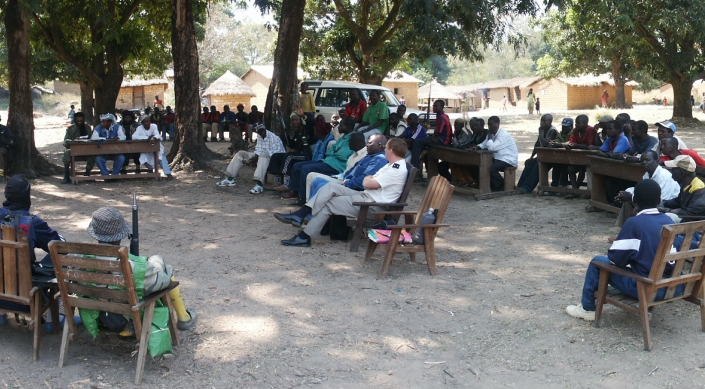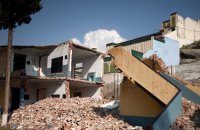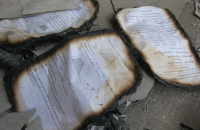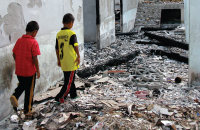Attacks on education are any intentional threat or use of force—carried out for political, military, ideological, sectarian, ethnic, religious, or criminal reasons—against students, educators, and education institutions.
You are here
Home ›Initiatives

GCPEA currently works on the following four major initiatives, each of which respond to specific areas of unmet need in protecting education from attack.
Each initiative is led by a working group that has identified outcomes over a multi-year time frame and developed plans for a range of activities. Planned activities include research, publication of reports, convening of knowledge roundtables, and advocacy to strengthen prevention, protection, monitoring and reporting, and adherence to international law and standards to protect education from attack during armed conflict.
Strengthening Monitoring and Reporting
This initiative seeks to build greater awareness, knowledge and understanding of attacks on education in countries across the globe, in order to be able to develop effective strategies to protect against them. To achieve these objectives, GCPEA has produced Education under Attack 2018, a global survey of attacks on education. GCPEA is also advocating with the Security Council to improve its monitoring of attacks on schools and school personnel in armed conflict, and is encouraging international treaty monitoring bodies to raise the issue of attacks on education and military use of schools and universities in their examination of states as part of their standard practice.
Promoting Effective Programs and Policies for Protection and Prevention
The aim of this initiative is to contribute to establishing an evidence base that demonstrates that certain programs and policies are effective in protecting students, teachers, schools, and universities from attack. This evidence will then be used to advocate with policymakers, development partners and practitioners for increased support and implementation of these measures. Toward this end, GCPEA is producing a series of briefing papers that will document the effectiveness of select measures.
Protecting Schools and Universities from Military Use during Armed Conflict
The initiative is intended to build global recognition of the negative consequences of military use of schools and universities, and the need – and commitment – to restrict the practice. For over two years, GCPEA held consultations with states, UN agencies, and human rights and humanitarian organizations, which informed the development of the Guidelines for Protecting Schools and Universities from Military Use during Armed Conflict, unveiled at the United Nations in Geneva in December 2014. Throughout the first half of 2015, Norway and Argentina led consultations to develop the Safe Schools Declaration, through which states can express political support and commitments for the protection of education in armed conflict, including through the implementation of the Guidelines. The Safe Schools Declaration was endorsed by an initial group of 37 states at an international conference on Safe Schools in Oslo on May 29, 2015 and that number has since been growing.
Protecting Higher Education from Attack
The goal of this initiative is to understand the causes of attacks on higher education, to help develop better protection measures, and to illustrate how the protection of higher education links to greater protection of education at all levels. In November 2013, GCPEA released its report Institutional Autonomy and the Protection of Higher Education from Attack. The report suggests that institutional autonomy of higher education institutions plays a direct and indirect protective function. As a follow-up to the report, GCPEA is developing and seeking wide recognition of a statement of Principles of State Responsibility for Protecting Higher Education. The primary purpose of a statement of principles is to secure public acknowledgement of state responsibility not only to refrain from committing attacks on universities, their students and staff, but to protect against attacks by non-state actors.
The Problem
Attacks on education violate the right to education and other internationally protected human rights applicable at all times.
Attacks on students, educators, and education institutions can have a devastating impact on access to education and education systems and on a society’s overall development in the long-term.



